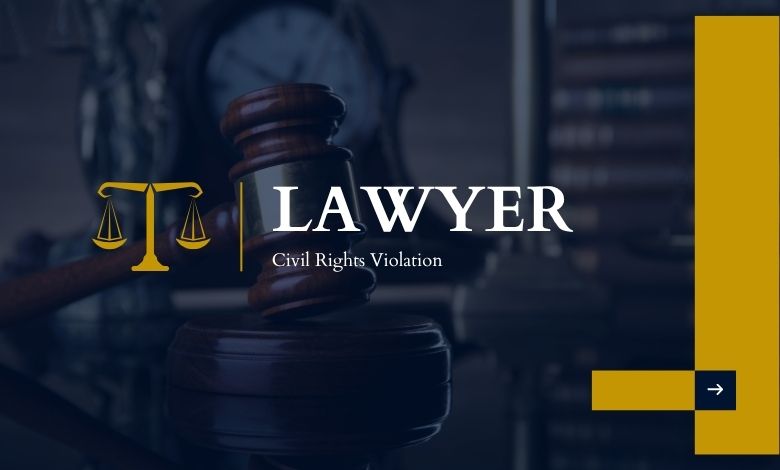Why Civil Law Matters: Protecting Your Rights and Property

Criminal law forms a critical part of the legal system in the United States, designed to maintain public order and protect individuals and property by defining unacceptable behaviors and establishing punishments. When someone faces criminal charges, understanding the scope and role of criminal law services becomes essential to navigate the complexities of the legal system effectively. This post offers a comprehensive overview of criminal law services in the U.S., highlighting what defendants can expect and why professional legal assistance matters.
What Is Criminal Law?
Criminal law governs conduct that is considered harmful or dangerous to society as a whole. Unlike civil law, which deals with disputes between individuals or entities, criminal law involves actions prosecuted by the government because they violate statutes established for public safety and welfare.
Crimes can range from minor offenses such as traffic violations and petty theft to serious felonies like murder and drug trafficking. Penalties vary accordingly, from fines and probation to lengthy prison sentences or even the death penalty in some states.
Types of Criminal Law Services
Criminal law services encompass a broad range of legal assistance provided by attorneys who specialize in defending or prosecuting criminal cases. Key services include:
1. Legal Consultation and Case Evaluation
Early legal advice is crucial for anyone charged with a crime. Criminal defense attorneys review the facts, evidence, and charges to evaluate the strength of the prosecution’s case and determine possible defense strategies. They explain the legal process, the defendant’s rights, and potential outcomes to prepare clients for what lies ahead.
2. Investigation and Evidence Gathering
Defense attorneys often conduct their own investigations to uncover evidence that may support the defendant’s innocence or reduce liability. This might include interviewing witnesses, reviewing police reports, consulting experts, or challenging the legality of evidence collection methods.
3. Plea Bargaining
Many criminal cases are resolved before trial through plea bargains. Skilled defense lawyers negotiate with prosecutors to reduce charges or penalties in exchange for a guilty plea. This process can save clients time, money, and the risk of harsher sentences if convicted at trial.
4. Trial Representation
If a case goes to trial, criminal attorneys prepare thoroughly to advocate on behalf of their clients. This includes jury selection, opening and closing statements, cross-examination of witnesses, and presenting evidence and legal arguments to challenge the prosecution’s case.
5. Sentencing Advocacy
After a conviction, lawyers can argue for leniency during sentencing by presenting mitigating factors such as the defendant’s background, lack of prior offenses, or circumstances surrounding the crime. They may also explore alternatives like probation or rehabilitation programs.
6. Appeals and Post-Conviction Relief
If a defendant believes errors occurred during the trial, they can seek an appeal. Criminal law services extend to filing appeals and post-conviction motions to overturn wrongful convictions or reduce sentences based on new evidence or legal mistakes.
The Role of Criminal Defense Attorneys
Defense attorneys are the cornerstone of criminal law services. Their job is to protect the accused’s constitutional rights, provide legal advice, and mount a robust defense against the charges. Key responsibilities include:
- Protecting Rights: Ensuring law enforcement and prosecutors follow legal procedures and do not violate the defendant’s rights, such as the right to remain silent and the right to counsel.
- Case Analysis: Reviewing all evidence and police procedures to identify weaknesses or violations that can be challenged in court.
- Strategic Planning: Developing defense theories based on facts, legal precedent, and applicable laws.
- Client Advocacy: Representing clients’ best interests in negotiations, hearings, and trials.
Without effective legal representation, defendants face a much greater risk of unfair treatment or wrongful convictions.
Common Criminal Charges and Services
Criminal law services cover a wide array of offenses, including:
- DUI/DWI: Defense against charges of driving under the influence.
- Drug Offenses: Charges related to possession, distribution, or manufacturing of controlled substances.
- Violent Crimes: Assault, robbery, homicide, and domestic violence cases.
- Theft and Property Crimes: Burglary, larceny, vandalism.
- White Collar Crimes: Fraud, embezzlement, identity theft.
- Sex Crimes: Charges involving sexual assault or exploitation.
Each type of charge requires specialized knowledge and defense strategies tailored to the circumstances.
Why Early Legal Assistance Matters
Promptly consulting with a criminal defense attorney after arrest or even before being formally charged is vital. Early intervention helps:
- Protect your rights during police questioning.
- Avoid incriminating statements or evidence.
- Investigate the case thoroughly.
- Prepare for bail hearings and plea negotiations.
Delaying legal assistance can limit your defense options and worsen the outcome.
Conclusion
Understanding criminal law services in the United States is crucial for anyone involved in the criminal justice system. From initial consultation to potential appeals, criminal lawyers provide indispensable support to ensure fair treatment and effective defense. Whether you are facing a misdemeanor or a serious felony, working with an experienced criminal attorney increases your chances of a favorable outcome and safeguards your legal rights throughout the process.
If you or someone you know is confronted with criminal charges, don’t hesitate to seek professional legal help immediately. The complexities of criminal law demand expertise, strategy, and advocacy that only a qualified criminal lawyer can provide.



